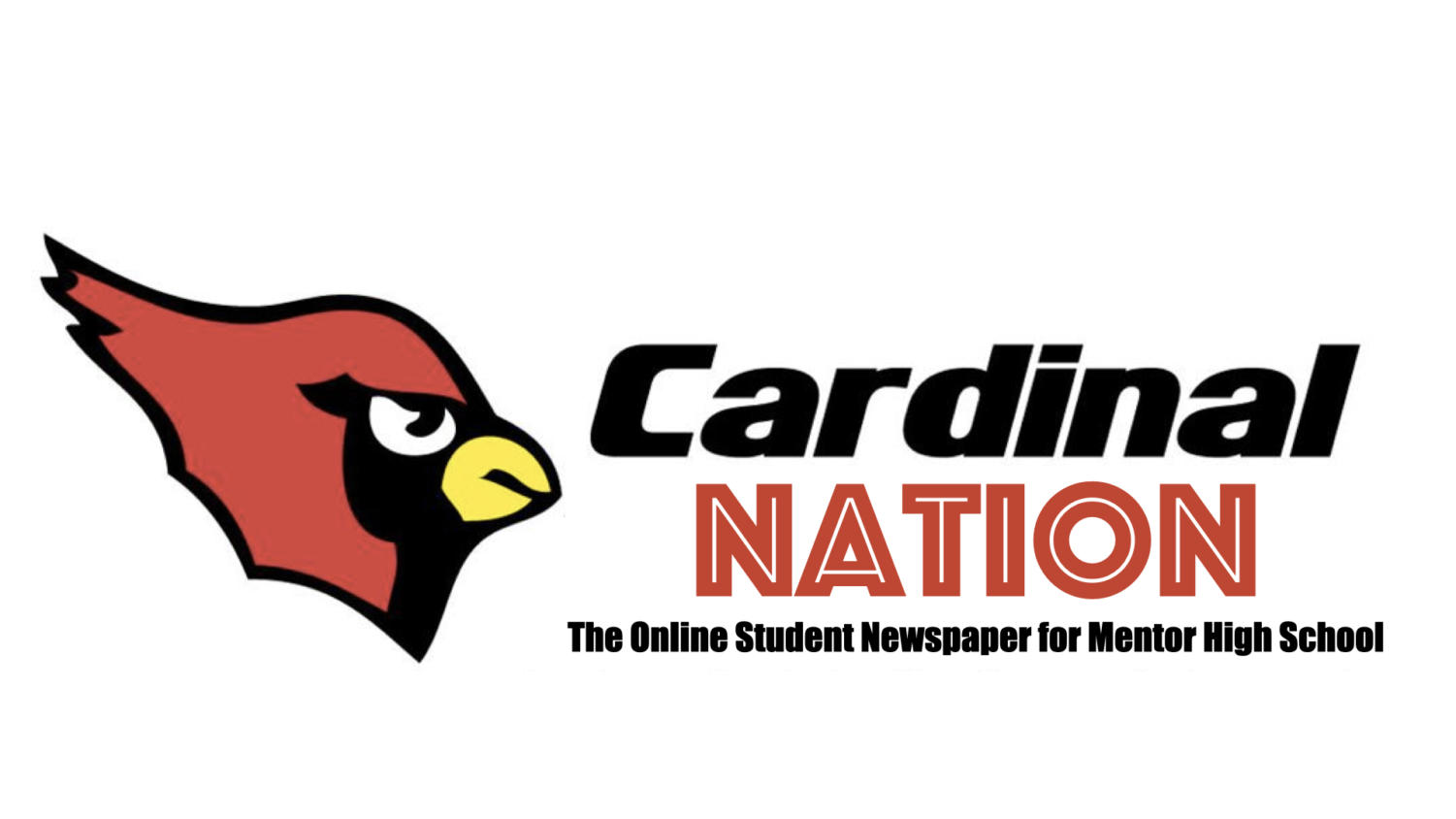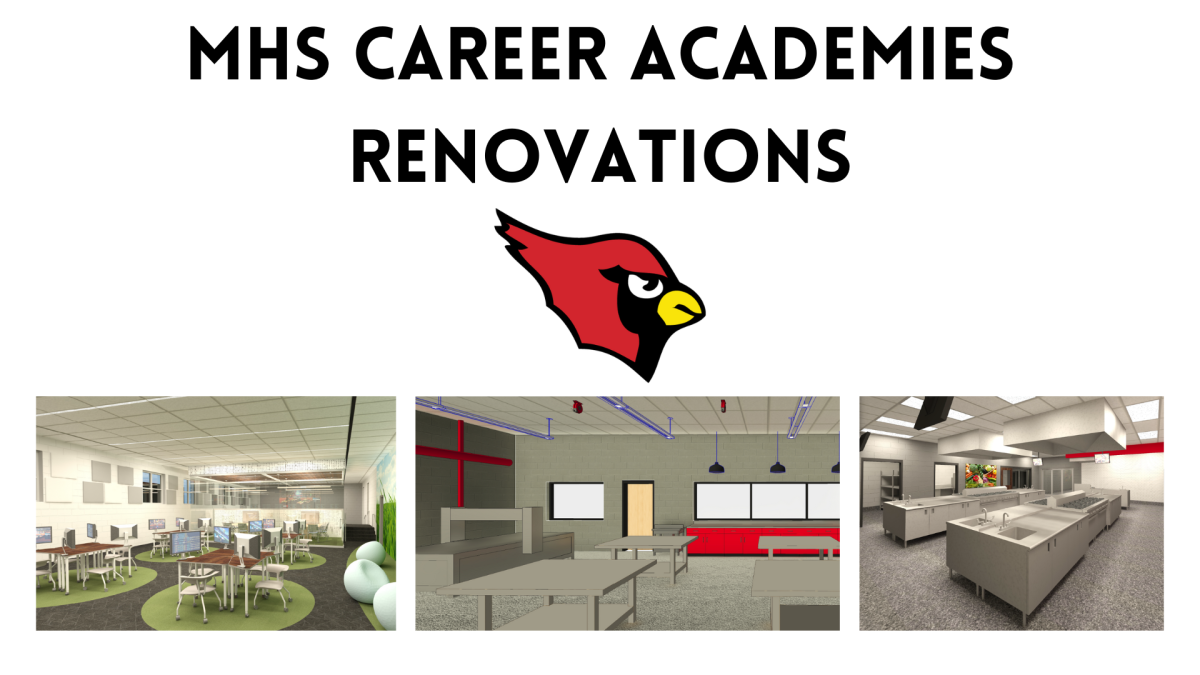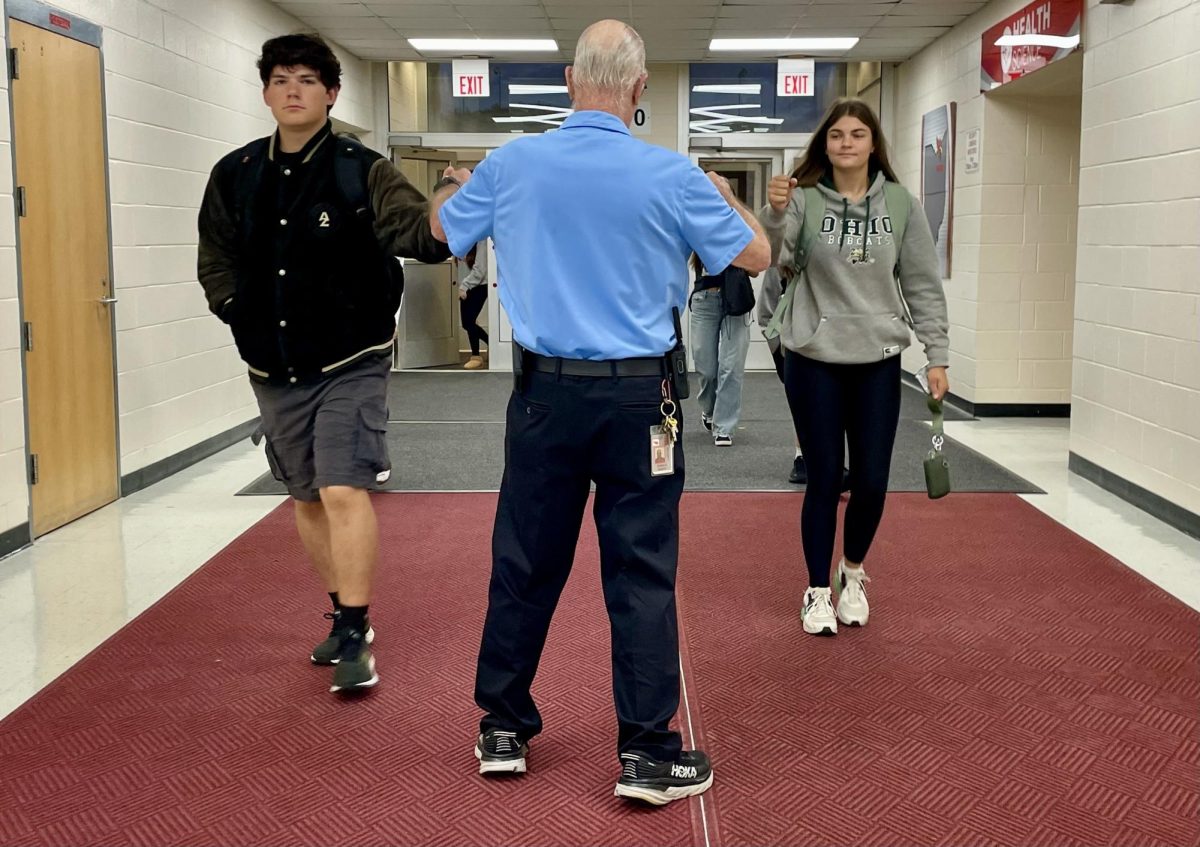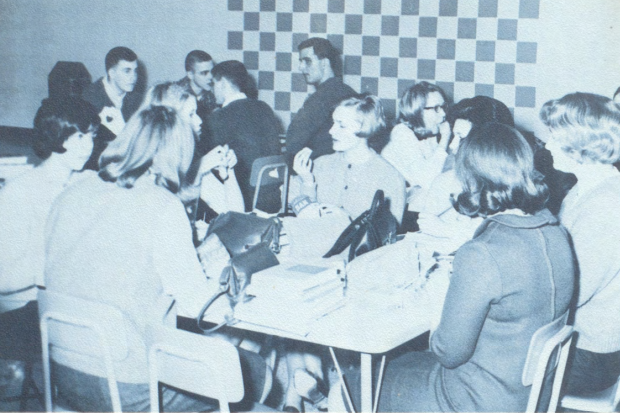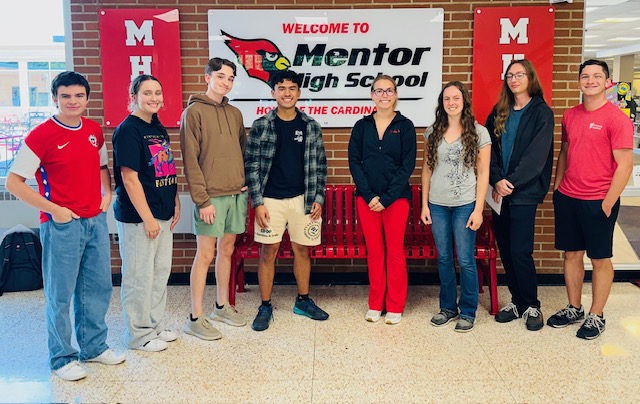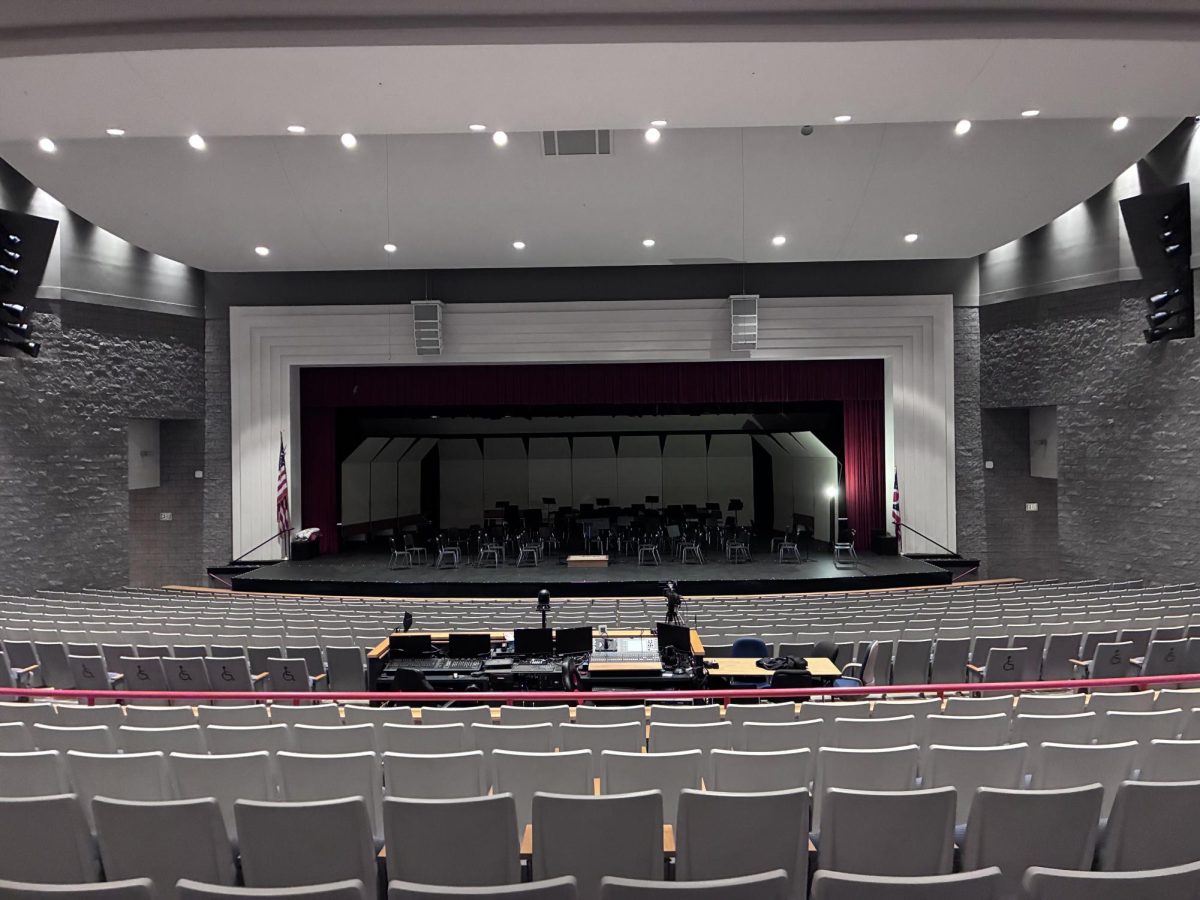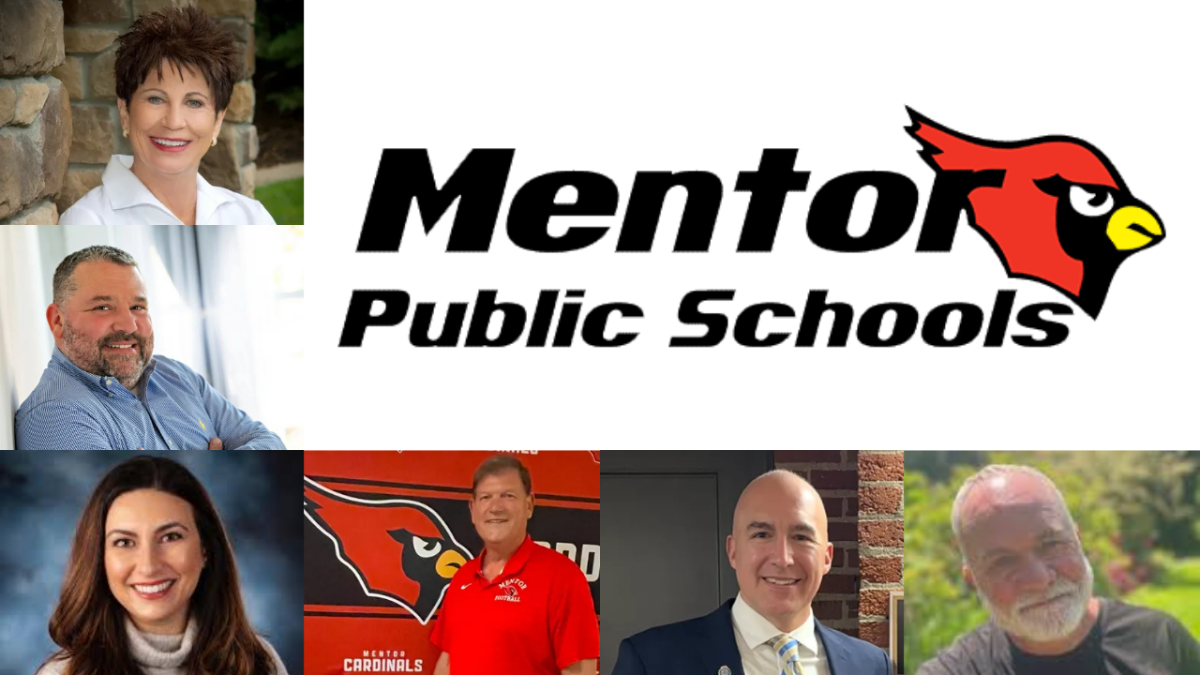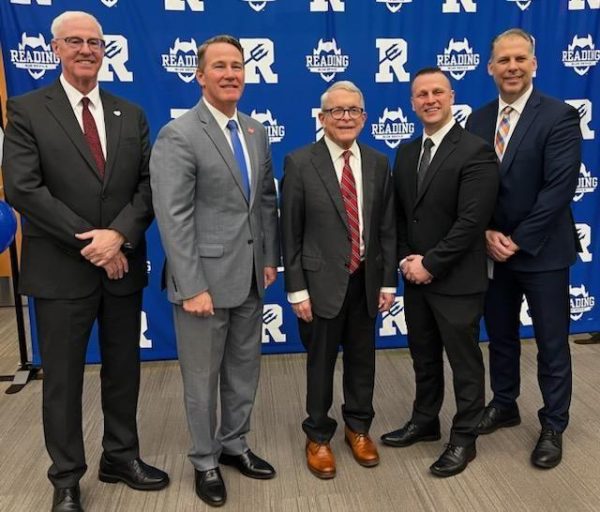 In March the district announced that we’d received a $2.2 million dollar grant announced by Governor Mike DeWine. From this grant, Mentor had introduced a new program called Career Academies, which includes 8 career-focused programs. It’s likely you’ve seen signs for these classes as you enter the building through the F-wing doors. However, if you’re entirely unfamiliar with these programs, here’s the included course paths.
In March the district announced that we’d received a $2.2 million dollar grant announced by Governor Mike DeWine. From this grant, Mentor had introduced a new program called Career Academies, which includes 8 career-focused programs. It’s likely you’ve seen signs for these classes as you enter the building through the F-wing doors. However, if you’re entirely unfamiliar with these programs, here’s the included course paths.
- Aviation Academy: Students explore the world of aviation (aircraft flying) through hands-on immersive activities. During this course, a main opportunity is the chance to become a licensed FAA drone pilot. In addition to this, students will also receive an Unmanned Aerial Systems level 1 certification and study aviation theory.
- Business Academy: This program helps students to explore the world of business and earn credentials in Microsoft Office. Taking this course gives students a huge leverage of employability in the sector of business.
- Workforce-Ready Academy: This program is designed to give students a path into the workforce by allowing students to work part-time during the school day and providing research outlets for different careers.
- Construction Academy: In this course students will acquire skills in carpentry using applied math and communication skills.
- Culinary Academy: Students will learn skills of the culinary arts like serving, plating, sanitation practices, culinary math, and allergen safety.
- Mentor Fire EMT Academy: Through Lakeland and Mentor Fire, students are able to acquire essential skills for earning their EMT and eligibility to take the National Registry for Emergency Medical Trainers test.
- Digital Media Academy: This course allows students to explore skills for web and graphic design. In this course students earn Adobe certified professionals and other Adobe software credentials.
- Young Professionals Academy: In this program students can explore different careers by shadowing professionals and gain hands-on experience in their fields of interest.
These programs have increased in interest at Mentor. Recently, we had the honor of having the Ohio Director of Education and Workforce Development, Stephen Dackin, and Lakeland Community College President, Dr. Sunil Ahuja, tour Mentor Public Schools. They saw firsthand the amazing things changing at the school, including Career Academies. One of these changes includes the high amount of junior and senior engagement with our programs (Career Tech Education: 43%, College Credit Plus: 29%, Advanced Placement: 30%).
What’s become even more exciting about these programs is the announcement of renovations to better support IT, construction, and culinary aspects of these academies. As of November 21st, information about these renovations was released. Currently they have set up posters that display mock-ups of the anticipated renovation designs. These renovations are being funded through help from Then Design Architecture (TDA), the Millstone Mangagment Group, and the Ohio Career Tech Grant program.
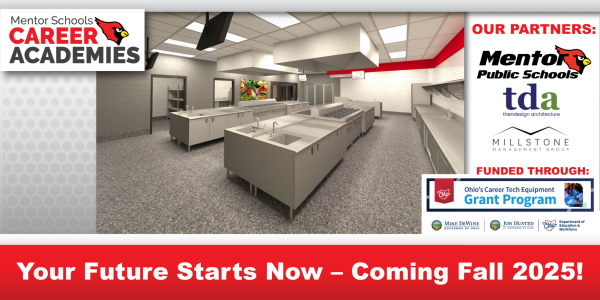
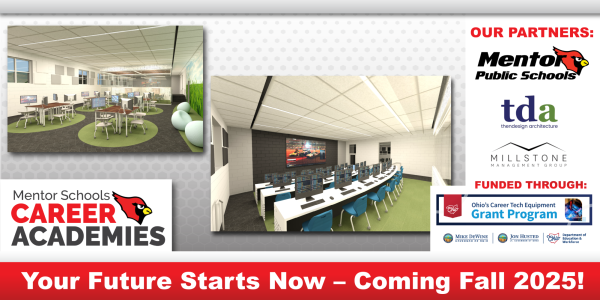
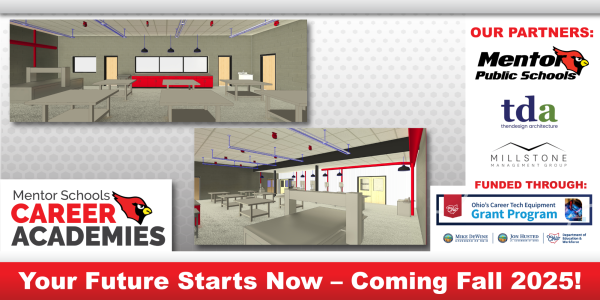
Personally, I’m excited to see how these renovations turn out and elevate the look and education at MHS. Looking at the mock-ups it appears the main focus of these rooms is certainly spacing and function. The IT classroom on the left is more crowded, and the other IT mock-up is spaced more, as I presume it’s meant for classes that require more monitoring of the students progress. As for the other designs, they display a very open space, as is necessary for academies like culinary and construction. These rooms also include more items related to the niche of the class, for example, work tables and sinks.
We reached out to Dr. Joe Glavan, who is director of Workforce Development, to find out more about what these renovations mean and how they came about.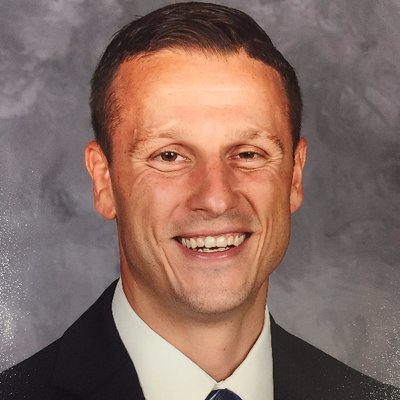
Cardinal Nation: What makes these renovations important to students’ college and career readiness?
Dr. Glavan: To prepare our students for life after graduation, we must expose them to the current technology and equipment used in the workplace. Whether they plan to continue their education in college or enter the workforce directly, these experiences ensure they are well-prepared and competitive.
Cardinal Nation: How was the decision made that this was the next step for creating career academies?
Dr. Glavan: The decision to expand our career academies stems from a comprehensive, community-driven process. Input from thousands of stakeholders—including students, families, staff, local businesses, and community members was gathered through surveys, community forums, student panels, classroom visits, informational meetings, and Discovery Day activities. These contributions shaped the Framework for the Future, a strategic plan for Mentor schools designed to align with the community’s shared vision for education. This framework includes key elements such as the Learner Profile, Learning Model, Big Moves, and Success Metrics, all of which emphasize the importance of college and career readiness. A clear directive from this process was the need to expand opportunities for students to explore and prepare for future careers and higher education. By nurturing college and career pathways, this initiative ensures students gain access to meaningful, hands-on learning experiences that equip them with the skills and knowledge needed to succeed beyond high school.
Cardinal Nation: What is the difference between these academies and other programs offered in the building?
Dr. Glavan: Mentor Career Academies stand out from other programs offered in the building due to their focused, career-driven design. These unique 1- or 2-year programs allow students to explore various career pathways while earning industry-recognized credentials—all without leaving the supportive environment of Mentor High School.
Students have the opportunity to gain credentials that prepare them for immediate employment or further education in their chosen fields. Some of these credentials include:
- Pre-apprenticeships in construction or hospitality
- CompTIA Cybersecurity
- ServSafe Manager
- Certified Nursing Assistant (CNA)
- Entrepreneurship and Small Business
- Adobe
- FAA Drone Pilot
The academies provide a hands-on, experiential learning environment designed to bridge the gap between classroom education and the workforce, making them a distinctive and practical choice for students eager to gain a competitive edge in their future careers.
Cardinal Nation: Who helped create the mockups for the renovations? What did that process look like?
Dr. Glavan: Mentor Schools partnered with Millstone Management Group as our project manager and Then Design Architecture (TDA) for architecture, planning, and interior design. TDA created the renderings and has collaborated with Mentor Schools on numerous projects, including the Mentor Paradigm.
Discussions began in April 2023, involving collaborative efforts on the project design and the grant application that secured the funding. Our partnership has been key to the project’s success.
Cardinal Nation: Were students involved in the decisions for these renovations?
Dr. Glavan: While our primary focus was working with staff and local businesses to understand classroom needs, the decisions were made with student success as the ultimate goal.
Cardinal Nation: What can students taking these courses look forward to with the new features in these classrooms?
Dr. Glavan: Students can look forward to accessing the tools and spaces necessary to succeed in an ever-changing workplace. These enhancements will prepare them with the skills and knowledge needed for their futures.
Cardinal Nation: How was the $2.2 million grant and state funding split among six classrooms, considering the higher costs of specialized classrooms?
Dr. Glavan: Rather than dividing the funding equally among programs, we focused on ensuring that each space meets its specific needs. Larger investments were made in construction and culinary labs due to their specialized equipment and space requirements.
Cardinal Nation: Does the “coming fall of 2025” sign mean the classrooms will be completed or started then?
Dr. Glavan: The renovations are expected to be completed by summer 2025 and ready for students at the start of the fall semester.
Cardinal Nation: There are six renovations listed but only five signs. Is the final design still being worked on?
Dr. Glavan: Yes, we are finalizing the renderings. The renovations include two Family and Consumer Sciences (FCS) classrooms, two I-wing classrooms, and two F-wing classrooms. Additionally, we will be remodeling the Cardinal Path classroom in the I-wing.
Cardinal Nation: Will these renovations significantly reduce space for other classrooms in the I and F wings?
Dr. Glavan: While the spaces are being reconfigured, access for students is not being reduced. The changes are designed to enhance functionality while maintaining availability.
Cardinal Nation: Is there a plan to maintain the renovated spaces after completion?
Dr. Glavan: Yes, Mentor Schools are committed to maintaining all of our facilities at a high standard. Additionally, we receive annual state and federal funding dedicated specifically to Career Technical Education programs. These funds will help us maintain and update the spaces as workforce needs evolve.
Let’s take a second and highlight some really exciting news we gathered from Dr. Glavan. First of all, these rooms are anticipated to be functioning by fall of next year. Additionally, there are some more renovation designs we are yet to see, which are 2 Family and Consumer Sciences Classes and 4 additional classrooms that haven’t been revealed yet, but we do know they too will be in I and F wing.
In case you aren’t already excited for these renovations, lots of students at the school have been chatting about the signs. Many students have noted that after seeing the signs, they’re interested in taking career academies. Again, I think these courses are going to help a lot of students who want to test the waters of a career before committing to it. Also, these courses seem like a good way to help with workforce readiness as opposed to the traditional course structures, which are geared more towards general learning and college readiness.
Overall, based on what students have said when passing by the posters, it seems that these rooms are going to be a really great inclusion to the school and help advance education here at Mentor! Looking at how these room designs have come about, there’s no doubt that this step is going to get Mentor talked about, so if you’re interested in taking a course next year, check out this pamphlet about the courses so you can prepare for what next school year will look like for you.
